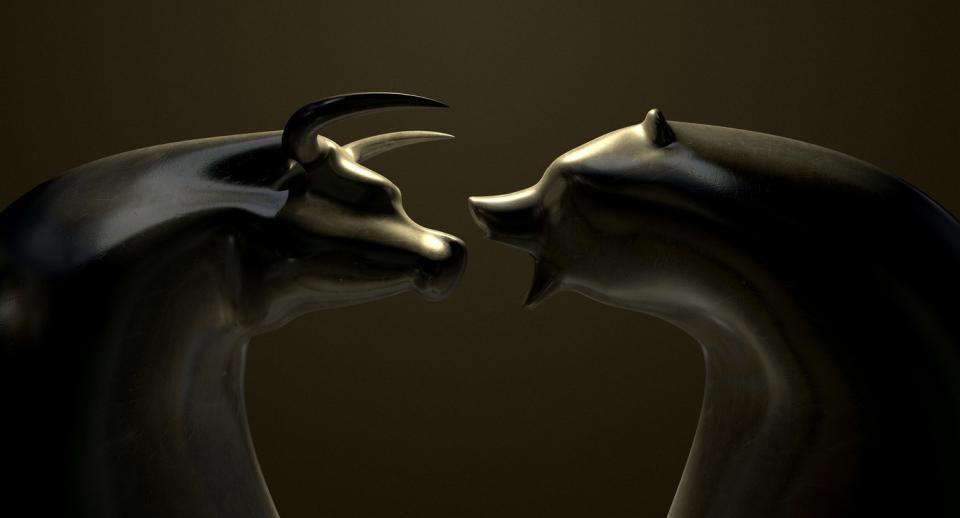Despite currently experiencing a booming bull market (with the S&P 500 (up more than 48% from its low in 2022), many investors are already worried about when the stock will take a turn for the worse.
The market can be incredibly unpredictable in the short term, so no one knows how long this bull market will last. But downturns are a natural part of the market cycle, so we know that at some point, a bear market is inevitable.

In some cases, a stock market crash It can also occur during periods of volatility. Crashes are generally defined as a sharp decline that occurs in a short amount of time, such as the crash in early 2020, when the S&P 500 plunged about 30% in a matter of weeks.
Now, there is no way to know for sure when the next market crash will occur. That said, it can be helpful to understand how they affect your money, as well as how to start preparing so your portfolio is as protected as possible.
Where does your money go during a market crash?
One of the most confusing aspects of market crashes for many investors is where the money actually goes. If you have a certain amount in your investment account and that balance drops during a market crash, what happens to that money?
It doesn't really go anywhere, confusing as it may seem. While it may seem like you're losing money during a market crash, in reality, it's just your stocks that lose. worth.
For example, let's say you buy 10 shares of a stock with a price of $100 per share, so your total account balance is $1,000. If the stock price falls to $80 per share, those shares are now only worth $800. If you decide to sell, you will lose $200 because you paid $1,000 but only got $800 back. That doesn't mean $200 went to another investor; Rather, his investments simply aren't worth as much now as they were when he first bought it.
Choose to sell However, it is the key element here. Let's say that instead of selling, you simply held on to your shares and waited for the market to recover. Over time, let's say your stock rises back to $100 per share and your balance returns to the initial level of $1,000. If you sell at this point, you won't have lost anything.
The easiest way to protect your money
No one knows when the next market crash may occur. But that doesn't mean you can't start preparing anyway so you'll be ready when it happens.
Perhaps the easiest way to protect your money against any type of market volatility is to take a buy and hold approach. Again, you technically don't lose money in the stock market unless you sell your investments. If you simply hold your shares until the market recovers, your shares should regain their value.
The key is to make sure you invest in solid stocks that have the ability to weather market turmoil. These stocks will likely continue to experience ups and downs in the short term, but as long as the companies behind them are healthy, they are much more likely to see their prices rebound when the market inevitably recovers.
The stock market can be discouraging at times, especially when no one knows precisely when the next recession will occur. But by investing in quality stocks and holding those investments for the long term, you can rest easier knowing that your portfolio is well-positioned to survive even the worst crises.
Don't Miss This Second Chance at a Potentially Lucrative Opportunity
Have you ever felt like you missed the boat when buying the hottest stocks? Then you'll want to hear this.
On rare occasions, our expert team of analysts issues a “Double bet” actions recommendation for companies that believe they are about to explode. If you're worried you've missed an opportunity to invest, now is the best time to buy before it's too late. And the numbers speak for themselves:
-
Amazon: If you invested $1,000 when we doubled down in 2010, you would have $20,671!*
-
Apple: If you invested $1,000 when we doubled down in 2008, you would have $36,098!*
-
Netflix: If you invested $1,000 when we doubled down in 2004, you would have $345,589!*
Right now, we are issuing “double bet” alerts for three incredible companies and there may not be another opportunity like this anytime soon.
*Stock Advisor returns from May 13, 2024
The Motley Fool has a disclosure policy.
Here's what happens to your money when the stock market crashes and how to protect your investments was originally published by The Motley Fool


